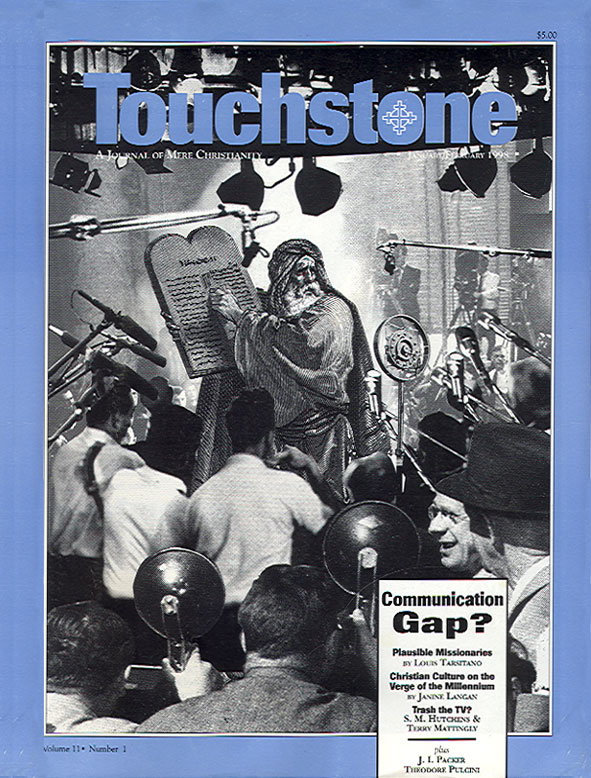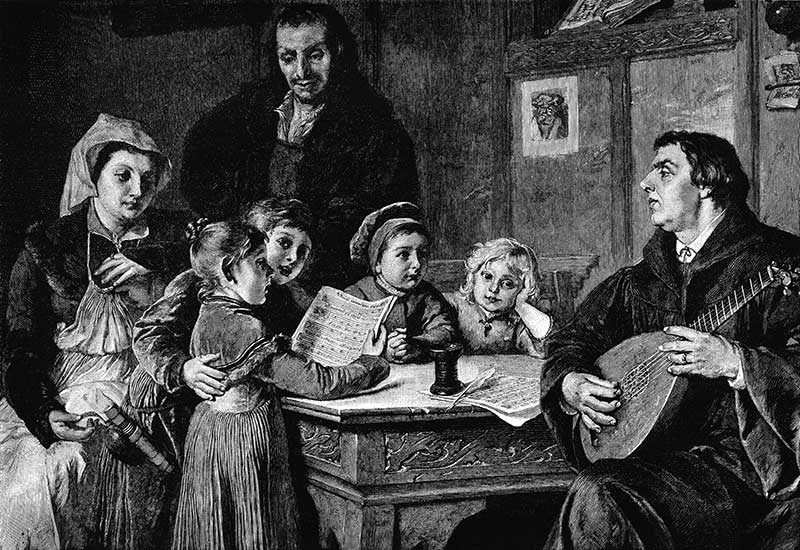A Small Step of Faith
Introduction to The Gift of Salvation
by J. I. Packer
“The Gift of Salvation” (GS) (see below) continues the process that announced itself in the 1995 statement “Evangelicals and Catholics Together: The Christian Mission in the Third Millennium” (ECT) and the explanatory book Evangelicals and Catholics Together: Toward a Common Mission (1995). Led by Charles Colson (Baptist) and Richard John Neuhaus (Roman Catholic), this process is a serious attempt by conservative leaders on both sides of the Reformation divide to build a platform of doctrinal and missional conviction on which they and their colleagues will be able to stand together so as to work cooperatively. ECT is explicit in hoping that the process will yield patterns of joint action. How realistic this is cannot yet be known, for the process has not yet gone far enough; however, as an Evangelical who could not be a Roman Catholic but cares about mission and identifies with both ECT, the ECT book, and GS, I urge that these are, at least, steps in the right direction.
It was, I think, Emil Brunner who first said that the Church exists by mission as a fire exists by burning, and the participants in the ECT process share this view. Earlier ecumenism was inward-looking, seeing mission as having to wait on the reunion of the churches. ECT ecumenism is outward-looking; it remembers that when Jesus prayed that his people might be one as he and the Father were one he was himself on a mission, at the Father’s sending and in the Father’s company, to save a lost world, and it rates cooperative social witness and evangelism as itself a fulfillment of the Savior’s prayer. ECT views mission as first and foremost obedience to Jesus Christ, this world’s risen Lord, the Savior whom all need and whom therefore we must seek to share with everybody, and the Pantocrator whose moral standards we must ever seek to uphold in community life. The ECT process is thus an application to mission of the so-called Lund principle, first enunciated a generation ago, that ecclesiastically divided Christians should not do separately those elements of service to Christ and the world that their consciences allow them to do together. What forms missional cooperation between Catholics and Protestants might one day take is currently beyond our ken; our question is, should we be trying now to spell out a basis for it? That is what the ECT process is up to, and the work goes on.
Technically, since its leaders are self-appointed and its membership self-recruiting, the ECT enterprise is unofficial, though official Catholic and Protestant leadership has taken some notice of it. Theologically, it is an association of mainstreamers, all of whom find themselves closer to each other than to the various Protestant and Catholic radicals with whom they also have to do. Empirically, as a consciousness-raising, opinion-shaping venture, ECT has already made waves and seems likely to make more, if only because GS is to have worldwide distribution while major evangelical leaders seem resolved publicly to oppose the ECT process all along the line. Tactically, since Protestants have always seen the doctrine of salvation as the area of fundamental cleavage between Catholics and themselves, there was need for the first of ECT’s promised detailed statements to address this theme directly, and to focus on God’s free justification of sinners by grace through faith in Jesus Christ and that alone. GS now sets before the Christian world what we who framed it have so far found ourselves able to say together as we tackled this task.
Since our ecumenism is one, not of concession and accommodation, but of conviction and confession, we have tried to avoid the ambiguity and vagueness of “weasel words” that have marred some ecumenical draftings in the past. GS honestly celebrates significant agreement while honestly noting matters important for the process which we have yet to explore.
I am an Episcopal Evangelical, who values beyond measure the truth of present justification stated in the Thirty-Nine Articles of the Church of England: “We are accounted righteous before God, only for the merit of our Lord and Savior Jesus Christ by faith, and not for our own works or deservings.” To me, therefore, it was a special joy that our Catholic colleagues could see, and say, that GS’s account of justification (which is not a full statement of the doctrine), so far as it goes, echoes “what the Reformation traditions have meant by justification by faith alone (sola fide).” Key questions about justification that have not yet been discussed are listed (the meaning of imputed righteousness, the normative and critical role of the doctrine of justification in theology and in the Church, and the exact relation between justifying faith and works), and the Tridentine anathemas are not mentioned; GS is, after all, no more than, just as it is no less than, a report of work in progress. But I find the Bible-centered method, the Christ-centered thrust, and the justification-centered focus of the document matters for great thanksgiving and encouragement.
Cardinal Edward Cassidy, visiting from the Vatican, spoke our mind when he said that to know Jesus savingly in any Church is much more important than belonging to any one Church while lacking that knowledge, and that the aim must ever be to evangelize with rather than against each other. So we think, and the memory of the moment of grace that gave us GS last October points us forward; on, then, in Christ’s name we go. The ECT process continues. n
J. I. Packer is Sangwoo Youtong Chee Professor of Theology at Regent College, Vancouver, Canada. He is the author of many books, such as Knowing God and A Quest for Godliness.
The Gift of Salvation
We give thanks to God that in recent years many Evangelicals and Catholics, ourselves among them, have been able to express a common faith in Christ and so to acknowledge one another as brothers and sisters in Christ. We confess together one God, the Father, the Son, and the Holy Spirit; we confess Jesus Christ the Incarnate Son of God; we affirm the binding authority of Holy Scripture, God’s inspired Word; and we acknowledge the Apostles’ and Nicene Creeds as faithful witnesses to that Word.
The effectiveness of our witness for Christ depends upon the work of the Holy Spirit, who calls and empowers us to confess together the meaning of the salvation promised and accomplished in Christ Jesus our Lord. Through prayer and study of Holy Scripture, and aided by the Church’s reflection on the sacred text from earliest times, we have found that, notwithstanding some persistent and serious differences, we can together bear witness to the gift of salvation in Jesus Christ. To this saving gift we now testify, speaking not for, but from and to, our several communities.
subscription options
Order
Print/Online Subscription

Get six issues (one year) of Touchstone PLUS full online access including pdf downloads for only $39.95. That's only $3.34 per month!
Order
Online Only
Subscription

Get a one-year full-access subscription to the Touchstone online archives for only $19.95. That's only $1.66 per month!
bulk subscriptions
Order Touchstone subscriptions in bulk and save $10 per sub! Each subscription includes 6 issues of Touchstone plus full online access to touchstonemag.com—including archives, videos, and pdf downloads of recent issues for only $29.95 each! Great for churches or study groups.
Transactions will be processed on a secure server.
more from the online archives
calling all readers
Please Donate
"There are magazines worth reading but few worth saving . . . Touchstone is just such a magazine."
—Alice von Hildebrand
"Here we do not concede one square millimeter of territory to falsehood, folly, contemporary sentimentality, or fashion. We speak the truth, and let God be our judge. . . . Touchstone is the one committedly Christian conservative journal."
—Anthony Esolen, Touchstone senior editor









